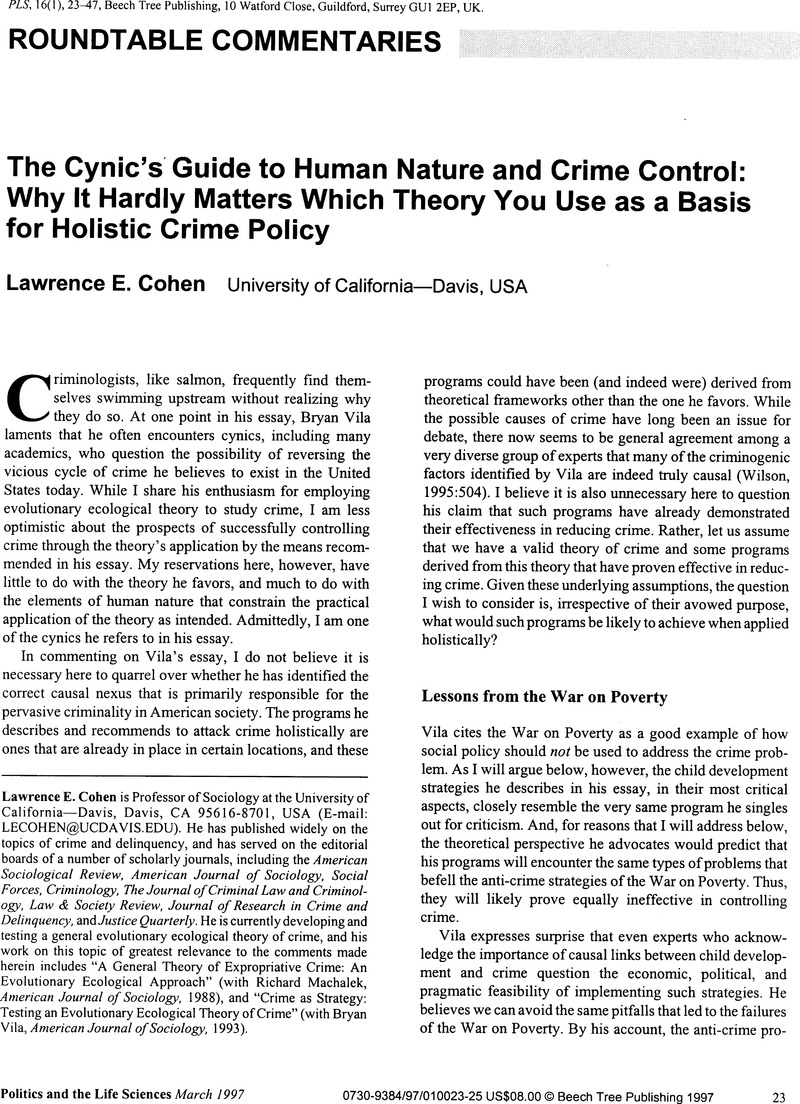No CrossRef data available.
Article contents
The Cynic's Guide to Human Nature and Crime Control: Why It Hardly Matters Which Theory You Use as a Basis for Holistic Crime Policy
Published online by Cambridge University Press: 17 May 2016
Abstract
An abstract is not available for this content so a preview has been provided. Please use the Get access link above for information on how to access this content.

- Type
- Roundtable Commentaries
- Information
- Copyright
- Copyright © Association for Politics and the Life Sciences
References
Moynihan, D.P. (1969). Maximum Feasible Misunderstanding: Community Action in the War on Poverty. New York: Free Press.Google Scholar
Wilson, J.Q. (1995). “Crime and Public Policy.” In Wilson, J. and Petersilia, J. (eds), Crime. San Francisco: Institute for Contemporary Studies.Google ScholarPubMed




